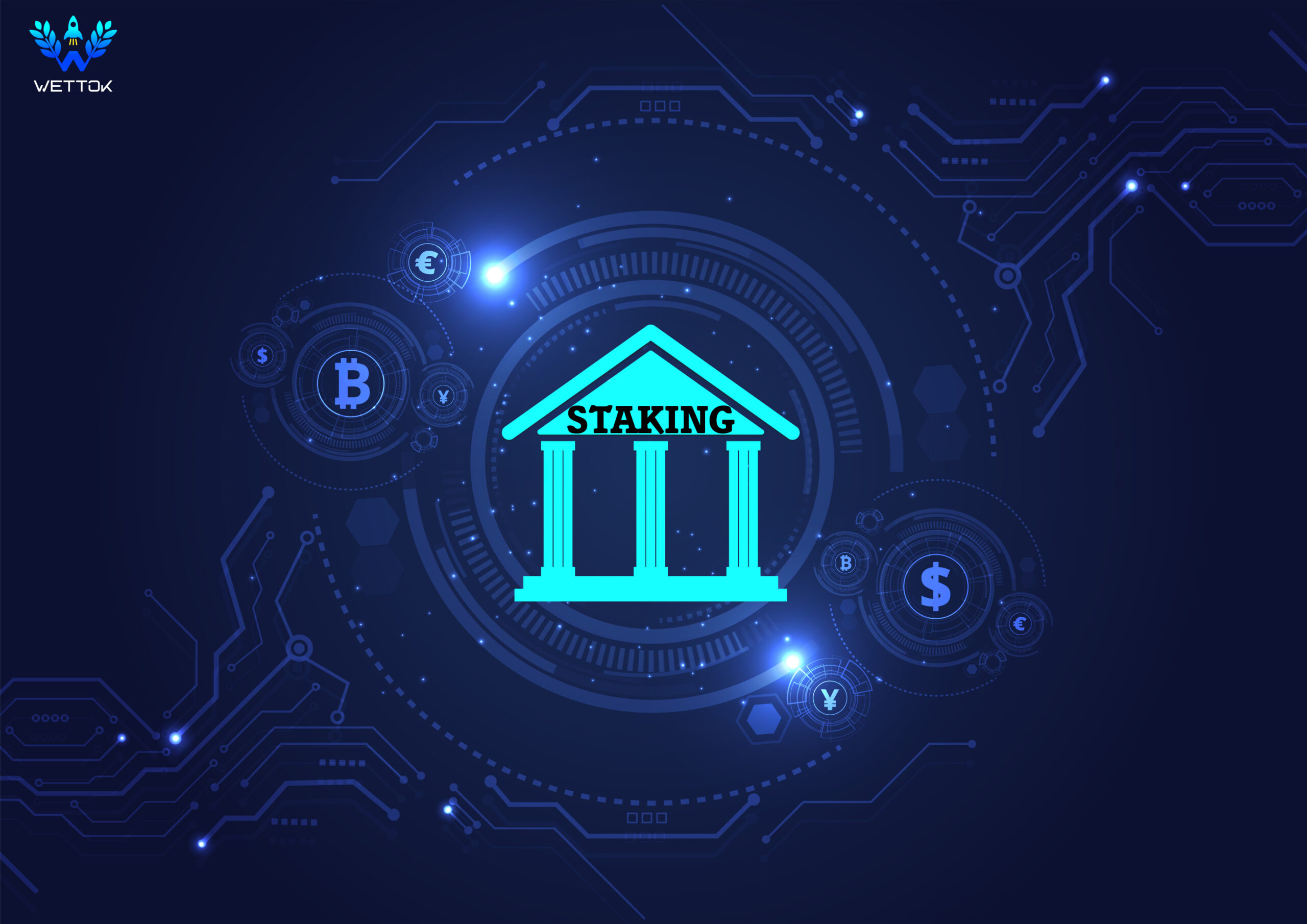
Introduction
Cryptocurrency and blockchain technology have taken the world by storm, revolutionizing industries and reshaping the way we perceive traditional systems. As we ride the wave of innovation in 2023 and beyond, it is crucial to understand the impact of crypto and blockchain on various sectors. This article explores the transformative power of these technologies, highlighting their potential and examining how they are reshaping industries across the globe.
Related Suggestion: Understanding Cryptocurrencies: The Beginner’s Handbook to Digital Money
Content
Finance Sector

Decentralized Finance (DeFi): Unlocking Financial Freedom
DeFi has emerged as one of the most groundbreaking applications of blockchain technology in the financial sector. By leveraging smart contracts and decentralized networks, DeFi platforms eliminate the need for intermediaries and offer a wide range of financial services. Users can access loans, earn interest on their digital assets, and trade cryptocurrencies directly on DeFi platforms, all while maintaining full control over their funds.
The rise of decentralized exchanges (DEXs) has also revolutionized the way we trade digital assets. Traditional exchanges often involve lengthy registration processes and centralized control, but DEXs offer a peer-to-peer trading experience with enhanced privacy and security. With the advent of decentralized finance, individuals worldwide can now participate in financial activities without relying on traditional banking systems.
Blockchain-Based Identity Management: Enhancing Security and Privacy
In the digital age, identity theft and data breaches have become significant concerns. Blockchain technology provides a solution through decentralized identity management systems. By storing personal information on a distributed ledger, individuals have greater control over their data, reducing the risk of unauthorized access.
Blockchain-based identity management also eliminates the need for multiple logins and passwords across different platforms. With a self-sovereign identity, individuals can authenticate themselves securely and seamlessly across various services. This technology has the potential to transform industries that heavily rely on identity verification, such as healthcare, banking, and e-commerce.
Tokenization: Democratizing Investment Opportunities
Tokenization refers to the process of representing real-world assets as digital tokens on the blockchain. This innovation opens up new investment opportunities for individuals who were previously excluded from traditional markets. By fractionalizing assets, such as real estate or artwork, tokenization allows investors to own a portion of these assets and participate in their potential appreciation.
Moreover, tokenization enhances liquidity by enabling the trading of fractional ownership in real-time. This brings greater efficiency and accessibility to previously illiquid markets. As tokenization gains traction, we can expect to see a democratization of investment opportunities and increased financial inclusion.
Supply Chain Management

Transparency and Traceability: Combatting Counterfeiting
Counterfeiting is a significant challenge in supply chain management, leading to economic losses and consumer safety concerns. Blockchain technology provides a transparent and immutable record of transactions, ensuring the authenticity and provenance of goods.
By leveraging blockchain-based supply chain solutions, companies can trace the journey of products from raw materials to the end consumer. This not only enhances trust but also allows for quicker identification of issues and targeted recalls when necessary. With blockchain’s ability to create an unalterable ledger, consumers can have confidence in the products they purchase.
Smart Contracts: Streamlining Contractual Processes
Traditional contract management involves complex and time-consuming processes, often leading to delays and disputes. Blockchain-powered smart contracts automate these processes, ensuring transparency, efficiency, and security.
Smart contracts are self-executing agreements that automatically enforce predefined conditions. By eliminating the need for intermediaries and manual verification, smart contracts reduce costs and streamline operations. They also minimize the risk of fraud and provide a tamper-proof audit trail. As blockchain technology continues to evolve, smart contracts are expected to become the standard for secure and efficient contract management.
Improved Efficiency and Collaboration
Blockchain technology enhances efficiency and collaboration within supply chains by providing a shared, decentralized database. This enables real-time visibility of transactions and inventory levels, reducing delays and optimizing inventory management.
Moreover, blockchain-based supply chain platforms facilitate seamless collaboration among multiple stakeholders. Suppliers, manufacturers, distributors, and retailers can access the same trusted data, ensuring accurate forecasting and improved coordination. By removing information asymmetry and siloed systems, blockchain empowers supply chains to operate more efficiently and deliver better customer experiences.
Healthcare

Securing Health Records: Protecting Patient Privacy
The healthcare industry holds vast amounts of sensitive patient data that must be protected from unauthorized access and tampering. Blockchain technology offers a secure and decentralized solution for storing and managing health records.
By leveraging blockchain, healthcare providers can create an immutable record of patient data, ensuring its integrity and confidentiality. Patients can have greater control over their medical information, granting access to healthcare professionals on a need-to-know basis. Additionally, blockchain-based health records enable interoperability among different healthcare providers, facilitating seamless data sharing and improving the quality of care.
Drug Traceability: Combating Counterfeit Medications
Counterfeit medications pose a serious threat to patient safety and public health. Blockchain technology can address this issue by providing end-to-end traceability of pharmaceutical products.
By recording every transaction and movement of drugs on the blockchain, stakeholders can verify the authenticity and integrity of medications. This ensures that patients receive genuine and safe drugs, mitigating the risks associated with counterfeit products. Blockchain-based drug traceability systems also enable rapid recalls and targeted interventions in case of quality issues or adverse events.
Research and Development: Accel erating Innovation
Blockchain technology has the potential to revolutionize research and development in the healthcare industry. By creating decentralized networks for data sharing and collaboration, researchers can access a vast pool of anonymized patient data for analysis.
This data-driven approach can accelerate the discovery of new treatments, improve clinical trial processes, and enhance precision medicine initiatives. With blockchain’s emphasis on data privacy and security, patients can contribute to medical research while maintaining control over their sensitive information. The intersection of blockchain and healthcare holds great promise for transformative breakthroughs in the coming years.
How does blockchain ensure the security of financial transactions?
Blockchain ensures the security of financial transactions through its decentralized and immutable nature. Each transaction is verified and recorded by multiple participants in the network, making it extremely difficult for malicious actors to alter the transaction history. Additionally, cryptographic algorithms and consensus mechanisms further enhance the security of blockchain networks.
Can blockchain technology be applied to industries other than finance?
Absolutely! While blockchain technology gained prominence through its application in finance (cryptocurrencies), its potential extends to various industries. Supply chain management, healthcare, logistics, voting systems, and intellectual property rights are just a few examples of sectors where blockchain can bring transformative change.
How do smart contracts work on the blockchain?
Smart contracts are self-executing agreements that are encoded on the blockchain. They automatically enforce predefined conditions and execute actions when those conditions are met. Smart contracts eliminate the need for intermediaries, streamline processes, and ensure transparency and security in contractual agreements.
What are the key benefits of blockchain-based supply chain management?
Blockchain-based supply chain management offers several key benefits, including enhanced transparency and traceability, streamlined contract processes through smart contracts, improved efficiency and collaboration among stakeholders, and better protection against counterfeiting and fraud.

Bill Foulkes is a business blogger who specializes in writing blog posts for small businesses. He has been blogging for over one year and does not use any ghost writers to help him with his work. Bill enjoys reading books on self-development and entrepreneurship, as well as watching YouTube videos on how to improve your life. When he’s not working, he likes playing video games and hanging out at the movies with friends.










